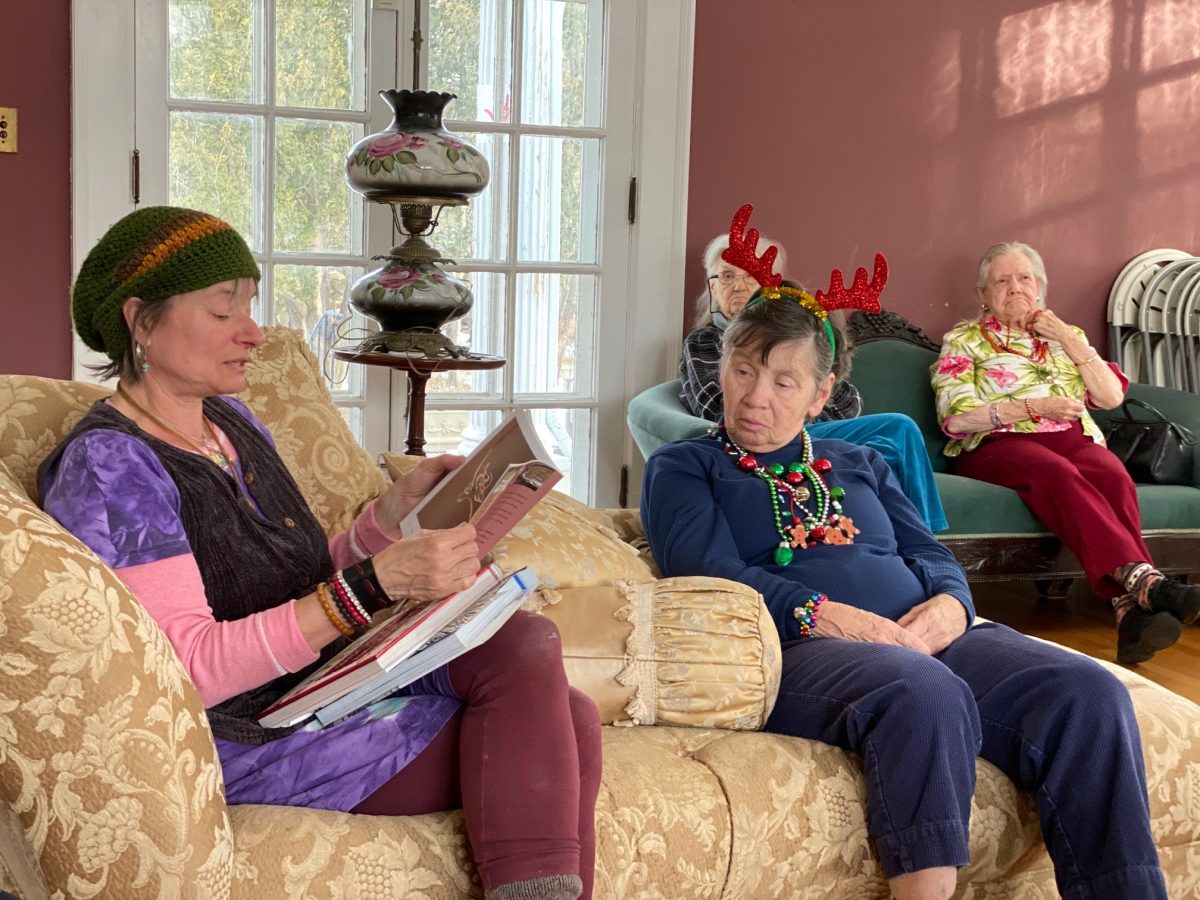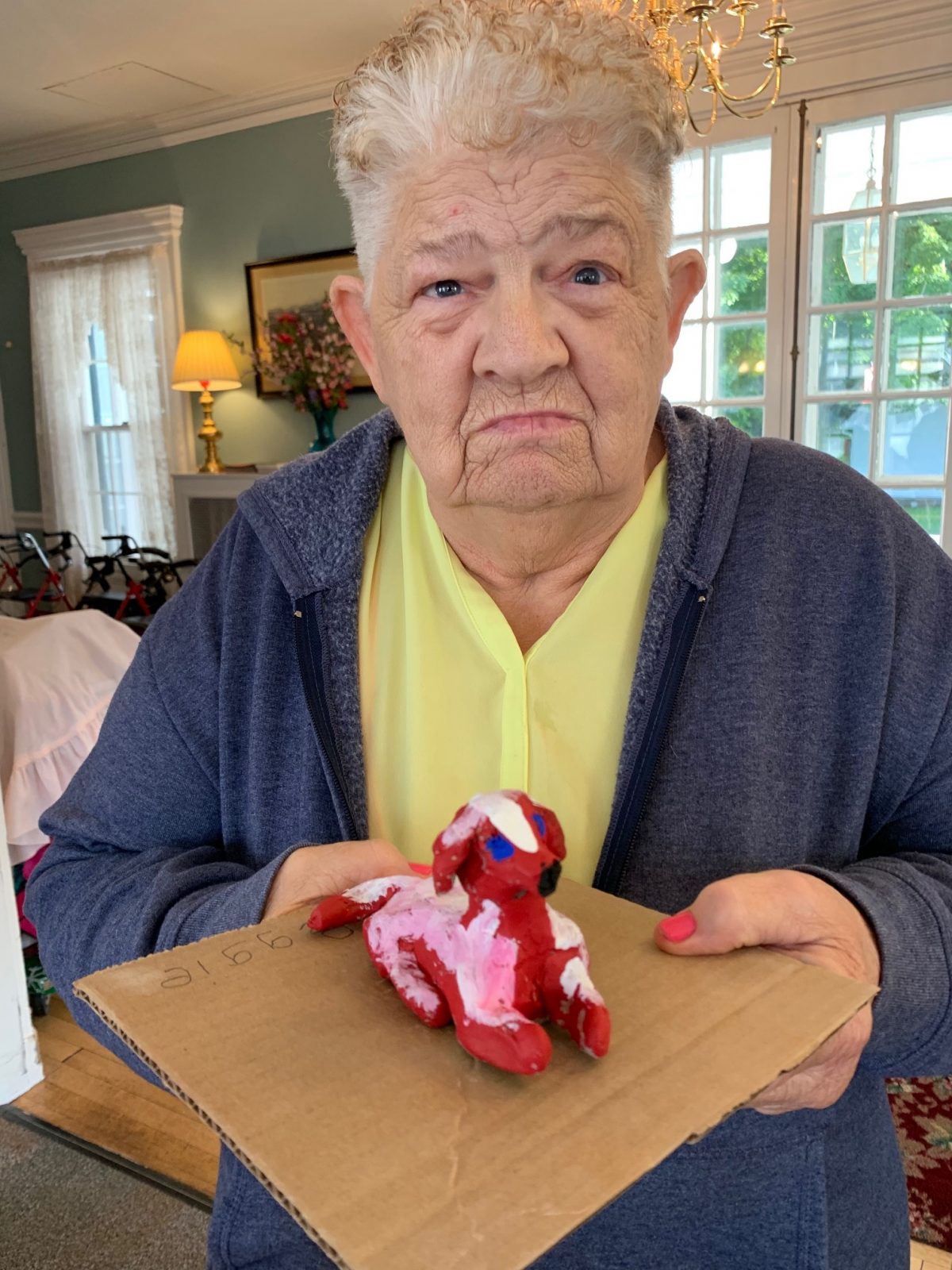I wrote a week or so ago about some people at the Mansion sometimes seem to lose their spark and spirit, seem to withdraw into themselves and let go of hope. I called it When The Light Goes Out.
A number of people were upset with what I wrote, they were angry at the thought their parents and relatives in elderly care might not be happy, or might have let go of some of the excitement and hope of life.
I wondered then and have often wondered why it is we expect the elderly to be cheerful and upbeat all the times when they are often sick, cut off from everything familiar, rarely see their families, are never around children, are getting closer to death, and have little meaningful work to do or distract.
In my reading and meditation and reading classes and other conversations, I find the residents are often puzzled at the idea that they should always be happy as they move towards the edge of life, often feeling powerless and abandoned. It seems to them this happiness is something others expect, but not them.
“I love it here,” one Mansion resident told me a couple of months ago when I asked how she was. “I wake up every morning wishing I were back in my old home. And I love it here.”
She added: “I have good friends here and am well cared for and don’t have to cook or clean. The staff could not be nicer. But when my family comes I have to be “happy” for them or they get upset and even threaten to move me somewhere. I am glad I am here, but why should I be happy that I am getting sicker and heading to the end of my life, and I’ve lost everything I had in life? I’m not complaining, but why do people expect me to be happy about where I am? This is not a normal life. I was happy when I had my first child and a job I loved and a husband and a sweet dog I loved and took care of them in my own house. I don’t have those things now, never will again.”
And, she added, she will never stop wanting to go home, even though there is no longer even a home for her to go to.
When I talk with the residents about aging, we talk more about acceptance than about happiness. Life is not grim there. I see people having fun, taking walks, making friends, solving puzzles, reading books, playing Bingo, laughing.
But I also see people who are in constant pain and are disoriented.
Sometimes, people tell me they are ready to go if everyone would just let them. Then they always add, “but don’t tell my family.”
But no one in elder care gets to go home. When someone gets sick, the ambulances come, they head off to hospitals and nursing homes. Many never return, caught up in a system they dread with little or no control over how they will spend the rest of their lives.
When I wrote about the “Lights Going Out” one woman said I had no right to assume that some of the elderly residents had given up. She was sure her mother, who was in assisted care, was very happy. And if not, she would demand something be done about it.
This way of caring for the elderly maybe be necessary, and it may be a reality, but I would not and do not ask anyone to be happy about it. I don’t fundraise for miracles, I have no magic wands to hand out.
These people had real lives, lovers, partners, friends, children, grandchildren, pets, and responsibilities. Of course, they miss them all, it would be almost inhuman for them to never look back on the people they lived with and loved, the dogs and cats they had, the children they cooked and care for.
Why would we expect they wouldn’t be sad at losing everything they knew and loved and are now isolated from the rest of the world until they get sick or are sent off into this insane system we call health care.
This kind of withdrawing doesn’t happen to everybody or even to most people, but when it does, it is sad.
Psychologists who work with the elderly say depression is common but not necessarily normal. Those who work with the extreme elderly, especially those in nursing homes and assisted care, find this kind of letting go and withdrawing increasingly common among elderly people with health problems in the late ’70s, ’80s, and ’90s.
Connie was the first person in the Mansion Maria and I got close to, the first one I followed to a nursing home and the hospital where she died. “I want to go to the Lord,” she told me again and again,”I wish everyone would let me.” Should she have been happy at that point, when she was in constant and piercing pain? Was there anything anyone could do about it?
In America, we are spoiled by great advances in psychology and medicine, we think there are cures and solutions for everything. Working as a volunteer in the Mansion and other elder care facilities, I know there are some things that are just not solvable or curable. None of us are as powerful as life, none of us can turn back the clock.
At the Mansion, the staff is especially caring, and there is a constant stream of activities, movies, outings, and the activities room is humming all day with exercise classes, readings, movies, TV shows, and crafts.
The Mansion is as good a place as I have seen in my eldercare work with Red and other dogs, and much better than many.
But I often think the residents better served if they are not always expected to be joyous and upbeat about their lives. They have good days and bad days, and the bad days are really bad.
And I’ve seen many family members blame the aides if their mother or father seems unhappy or disconnected. I have been around the Mansion long enough to know that this deflation is not the fault of the staff or anything but life. You cannot persuade discouraged or ill people to be happy. In hospice, I learned it is wrong to try.
It isn’t my job as a volunteer to cheer the residents up or tell them everything will be okay, nor is it my job to bring them down. My job is to listen, and never to judge or disagree or seek to alter reality. I know this is most often a hard and draining time of life, I think they need for me to understand that.
My mission is to give them the things they need, with the help of the Army Of Good, and accept them for who they are. Every time someone leaned over to pat Red, I saw sadness and longing in their eyes, usually for the pets they lost or left behind.
I don’t ask them to be happy or expect them too. If I were standing in their shoes, which I maybe one day, I hope I can accept my life and find peace with it. I like it when they tell me that they feel safe and comfortable and cared for.
I worry sometimes that people want our elders to be happy because we want to feel happy about them, we struggle to bear their sorry, even though no mortal has the power to make people at the edge life happy about it all the time.
One of the residents told me last week that her family is often asking her if she wants to come home, but she says she would rather stay at the Mansion. “They always want me to be happy there,” she said, “I can’t just be myself.”
For me, the goal is to provide comfort and address need, and whenever possible, just lend an ear and let the residents tell me the truth about how they feel.
I never try to judge them or talk them out of their feelings. I never tell them everything will be all right or suck it up, or that tomorrow will be better. How on earth would I know?
I am pleased if they are happy, but it is not something I ever feel I have the right to expect or demand.
Happiness and joy are difficult things for most people to find at any point in life, let alone when one is sick, on numerous medications, facing doctors appointments and surgeries, walking on painful legs, needing help to get dressed and go to the bathroom, and missing everyone they knew or loved.
“I want to be safe and comfortable here,” Madeline told me after meditation class, “I’m very grateful to be here, this my home now. But I haven’t been happy for about 20 years now since my arthritis fired up, don’t ask me to remember the last time.”
I won’t.






